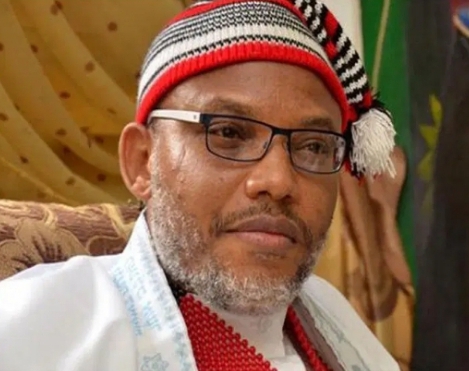By A. A. Mshelia
Two years after taking the oath of office as the fifth Executive Governor of Kogi State, Alhaji Ahmed Usman Ododo has quickly carved out a unique political identity: an action-driven reformist who has embraced continuity and innovation to bring real impact to the people of Kogi.
From a quiet political technocrat to the state’s chief executive, Governor Ododo has used two years in office to prove he is charting his own course with bold reforms, deep community engagement, and an unwavering focus on grassroots development.
Ahmed Usman Ododo emerged as the candidate of the All Progressives Congress (APC) in 2023 after a competitive but strategic primary that secured the party’s unity in Kogi. Before contesting, Ododo served as the Auditor-General for Local Government in Kogi State – a technocratic role that exposed him to the intricacies of finance, project monitoring, and rural administration.
Backed by his predecessor and mentor, Yahaya Bello, Ododo won the 2023 governorship election on the strength of promises to consolidate existing achievements while introducing a new era of citizen-driven leadership.
Governor Ododo’s administration has prioritized free, equitable, and quality education as a cornerstone for sustainable development. In an unprecedented move, he approved the payment of WAEC fees for over 18,000 final-year students, spending ₦600 million – a clear message that no child should be denied education due to poverty.
He followed this with the disbursement of ₦522 million to cover JAMB, NECO, and Common Entrance examinations, bringing massive relief to parents and raising school enrollment in public schools. These actions have set Kogi apart nationally as one of the few states removing financial barriers to education.
In higher education, his government invested over ₦8 billion in upgrading facilities at Kogi State University, Kabba, and CUSTECH, Osara. This includes ongoing construction of hostels, laboratories, and digital libraries. Plans to convert the Reference Hospital Okene into a Teaching Hospital for CUSTECH are underway a move that will anchor medical research and healthcare training in the state.
The Ododo administration is currently undertaking the construction of township roads in all 21 local government headquarters, fulfilling a key campaign promise. Notably, in Lokoja, major roads such as the Zone 8-Zango-GYB Junction and House of Assembly-Crusher Road were rehabilitated and fitted with solar-powered street lights, improving safety and nighttime commerce.
Furthermore, the proposed Kogi International Market along Crusher Road is a ₦multi-billion naira initiative that is set to transform trade within the Confluence State, offering thousands of jobs, especially to women and small-scale traders.
One of Ododo’s standout actions came in March 2024, when he announced a new minimum wage of ₦72,500 — higher than the national recommendation. This bold decision positioned Kogi as a pro-labour state and addressed longstanding grievances of civil servants.
Pensioners, who had long felt neglected, were not left out. A ₦10,000 monthly harmonization allowance was approved — the first such move in over two decades. Prompt salary payments and a friendly interface with organized labour groups have earned him the endorsement of major workers’ unions.
In response to nationwide inflation and food insecurity, Governor Ododo rolled out an agro-transformation initiative worth over ₦7 billion. The project included the procurement of tractors, farm inputs, and land clearing for thousands of farmers across the state.
With a focus on roots and grains, the government is engaging both youth and women in mechanized farming, reducing food prices and strengthening rural economies. His administration is also reviving irrigation schemes along the Niger and Benue basins to ensure year-round farming.
Healthcare delivery under Ododo has taken a community-based approach. His government is rehabilitating over 150 primary health centers and equipping them with solar-powered energy systems, ensuring uninterrupted services even in off-grid communities.
In collaboration with the federal government and international partners, the Ododo administration launched a mobile health outreach program offering free maternal care, immunization, and HIV testing across underserved LGAs.
The soon-to-be-completed CUSTECH Teaching Hospital will enhance access to specialist care and medical education, setting a new benchmark for public healthcare delivery in North-Central Nigeria.
Governor Ododo launched the Kogi Youth Empowerment and Skills Acquisition Program in late 2024. In the pilot phase, over 250 youths were trained in solar installation, mechatronics, computer repair, and welding, and they were given starter kits and business registration certificates.
His goal is to train at least 1,000 youth annually, turning unemployed graduates into skilled entrepreneurs and reducing dependence on white-collar jobs.
Moreover, the launch of the Kogi Performance Indicator Tracker (KPIT) in January 2025 marked a bold leap into digital governance. The tracker monitors progress on government projects in real-time, increasing transparency and citizen engagement.
Kogi has long been a strategic but volatile transit state. To keep the state secure, Governor Ododo invested in operational vehicles, surveillance gadgets, and local vigilante training, working closely with security agencies.
Under his administration, incidents of highway robbery and communal violence have drastically declined, earning praise from the Nigerian Police and the Department of State Services (DSS).
As 2025 unfolds, many political analysts are beginning to see in Ododo a national figure in the making. His emphasis on governance with data, youth development, and fiscal discipline is already drawing attention from policy think tanks and political interest groups in Abuja.
Although still in the early stages of his tenure, Ododo has shown maturity, pragmatism, and boldness in addressing local challenges. If he sustains this momentum, he may not only transform Kogi into an economic hub but also find himself in national conversations about the future of Nigeria’s progressive leadership.
In two years, Governor Ahmed Usman Ododo has moved to one of the most effective first-term governors in Nigeria. His administration reflects a deep understanding of the people’s needs and a willingness to meet them through innovation, inclusivity, and tireless execution.
The “New Direction Agenda” he inherited has now evolved into a People First Agenda – and for Kogi State, the future looks remarkably bright.











